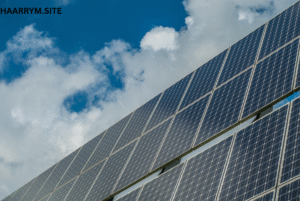With the growing demand for sustainable and eco-friendly technologies, the solar water heater system has emerged as one of the most reliable and cost-effective alternatives to traditional water heating methods. Whether you’re a homeowner looking to cut energy bills or a business owner striving for a greener footprint, this article will guide you through everything you need to know about solar water heating systems.
What Is a Solar Water Heater System?
A solar water heater system uses solar energy to heat water for domestic, commercial, or industrial use. Instead of relying on electricity or gas, it captures sunlight and converts it into heat through a collector system, making it an environmentally friendly option. The system generally includes:
-
Solar collectors (flat-plate or evacuated tubes)
-
Storage tank
-
Pumps and controllers (for active systems)
-
Backup heating source (optional)
How Does a Solar Water Heater System Work?
The process is simple but highly efficient. Here’s a step-by-step breakdown:
-
Sunlight Absorption: Solar collectors absorb energy from the sun.
-
Heat Transfer: The absorbed energy heats up a fluid (usually water or an antifreeze mixture) in the collector.
-
Hot Water Storage: The heated fluid is circulated through a heat exchanger in the storage tank.
-
Water Use: Hot water is then available for household or commercial use.
-
Backup Heater: During cloudy days or excessive use, a backup heater ensures a constant hot water supply.
Types of Solar Water Heater Systems
There are two main types of solar water heater systems:
1. Active (Pumped) Systems
These use electric pumps to circulate water or heat-transfer fluid through the system.
-
Direct Circulation Systems: Suitable for climates where it rarely freezes.
-
Indirect Circulation Systems: Use a non-freezing liquid to transfer heat, ideal for cold climates.
2. Passive Systems
These rely on natural convection and gravity rather than electric pumps.
-
Integral Collector Storage (ICS): Simple design with limited capacity.
-
Thermosiphon Systems: The storage tank is placed above the collector, allowing water to circulate naturally.
Pro Tip: Passive systems are cheaper and require less maintenance but are generally less efficient than active systems.
Why Choose a Solar Water Heater System?
There are numerous benefits to investing in a solar water heater system:
1. Cost Savings
While the initial installation cost may be higher, the savings on electricity or gas bills can offset this within a few years.
-
Reduce water heating costs by up to 80%
-
Enjoy government tax credits and rebates
2. Environmentally Friendly
Switching to solar reduces your carbon footprint.
-
Lower greenhouse gas emissions
-
Reduced reliance on fossil fuels
3. Low Maintenance
Most systems require minimal maintenance, usually a checkup every 3–5 years.
4. Increased Home Value
Homes with solar installations are more attractive to eco-conscious buyers.
5. Energy Independence
No more relying solely on the grid. You’re harnessing energy from a free, abundant source: the sun.
Ideal Locations for Solar Water Heater Systems
While these systems can be installed anywhere with access to sunlight, they are especially effective in:
-
Tropical and subtropical regions
-
Areas with high electricity rates
-
Remote or off-grid locations
Even in cold or cloudy climates, modern solar systems with high-efficiency collectors and backup heaters can perform effectively year-round.
Installation Tips for Maximum Efficiency
1. Proper Orientation and Tilt
Ensure the solar collectors face true south (in the Northern Hemisphere) and are tilted at an optimal angle to maximize solar gain.
2. Insulation
Properly insulate pipes and the storage tank to minimize heat loss.
3. Regular Maintenance
Inspect collectors for dust and debris, and flush the system annually to remove sediment.
4. Professional Installation
Always hire a certified installer to ensure safety and maximize system performance.
Common Myths About Solar Water Heaters
Myth 1: Solar Water Heaters Only Work in Hot Climates
Truth: Modern systems are designed to work efficiently even in cold or cloudy weather with the help of advanced materials and backup heating elements.
Myth 2: They’re Too Expensive
Truth: While upfront costs may seem high, incentives and long-term savings make them a smart investment.
Myth 3: Maintenance is a Hassle
Truth: These systems are durable and require minimal maintenance, especially passive ones.
Government Incentives and Subsidies
Many countries offer financial incentives to promote the adoption of solar water heater systems. These include:
-
Federal Tax Credits: In the U.S., you can claim up to 30% of the cost as a tax credit.
-
State Rebates: Various states offer additional savings.
-
Low-Interest Loans: Available for green energy installations.
-
Grants: For commercial or institutional users.
Check your local government or utility provider’s website for region-specific incentives.
Return on Investment (ROI)
Let’s break down the ROI of a solar water heating system:
| Item | Cost Estimate (USD) |
|---|---|
| Initial Installation | $3,000 – $7,000 |
| Annual Energy Savings | $200 – $600 |
| Payback Period | 5 – 8 years |
| System Lifespan | 15 – 25 years |
Pro Tip: After the payback period, your hot water is essentially free for the life of the system.
Choosing the Right Solar Water Heater System
Here’s what to consider when selecting a system:
-
Climate: Choose based on freeze conditions.
-
Household Size: Bigger homes need larger systems.
-
Roof Space: Ensure there’s enough unobstructed sunlight.
-
Budget: Balance between upfront cost and long-term savings.
-
Certifications: Look for products certified by reputable agencies like SRCC (Solar Rating & Certification Corporation).
Best Brands for Solar Water Heater Systems (2025)
Here are some trusted global brands:
-
Rheem Solar
-
Bosch Thermotechnology
-
Himin Solar
-
SunMaxx Solar
-
Duda Diesel
Each offers different models tailored for homes, businesses, and industrial use.
Case Studies and Real-World Examples
Residential Use
Sarah, a homeowner in Arizona, installed a thermosiphon solar water heater for $4,500. She saw her electricity bill drop by 40% and received a $1,200 rebate from the state.
Commercial Use
A hotel in Florida installed 10 flat-plate collector systems for guest bathrooms and saved over $15,000 annually on gas bills.
Common Issues and Troubleshooting
| Issue | Possible Cause | Solution |
|---|---|---|
| No hot water | Cloudy weather or system error | Use backup heater or service |
| Leaks | Loose joints or cracks | Seal or replace parts |
| Low pressure | Airlocks or blockages | Bleed the system |
| Strange noises | Scale buildup or pump issue | Flush system or check pump |
Future of Solar Water Heating
With the growing emphasis on sustainability and energy independence, the future looks bright for solar water heating systems:
-
Integration with Smart Home Systems
-
Hybrid Systems (solar + heat pump)
-
Increased Efficiency with Nano-Coatings
-
Wider Global Adoption
Governments, corporations, and individuals are recognizing the value of clean, renewable energy solutions.
Conclusion: Is a Solar Water Heater System Worth It?
Absolutely. A solar water heater system is more than just an eco-friendly gadget—it’s a long-term investment that pays off financially and environmentally. Whether you’re heating water for your home, office, hotel, or farm, solar technology can meet your needs effectively.
Promotional Style Ads (SEO-Optimized)
-
🌞 Slash Your Water Heating Bills by 80%! Install a solar water heater system and enjoy unlimited hot water powered by the sun.
-
🌍 Go Green and Save Green! Upgrade to a solar water heater today — eco-friendly, efficient, and affordable.
-
🛠️ Free Installation Quote Available Now! Discover how easy it is to switch to solar water heating.
-
☀️ Government Rebates Available! Don’t miss out — claim your tax credits and save big.
-
🔧 Maintenance-Free Hot Water for Decades! Invest in a solar water heater system today.

